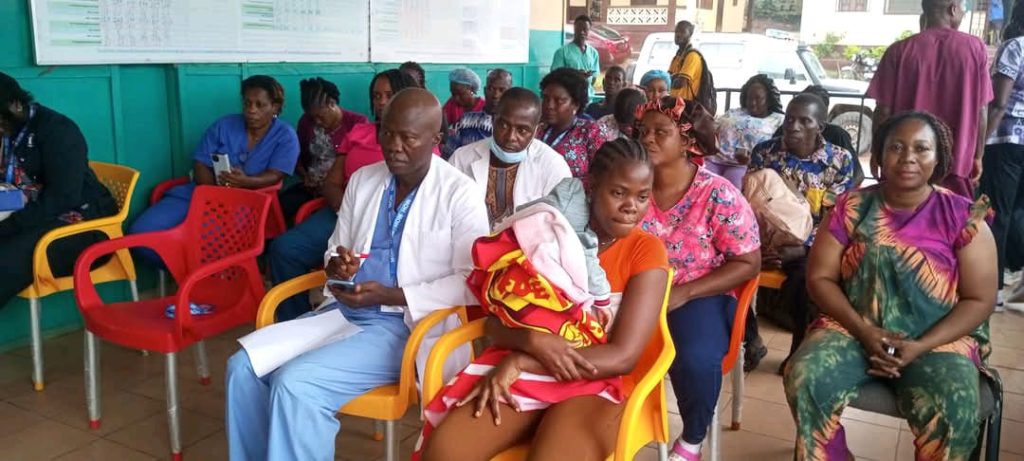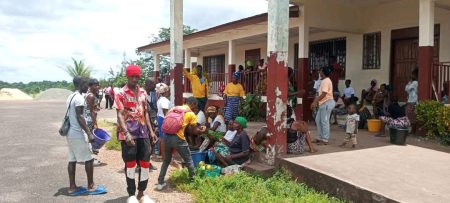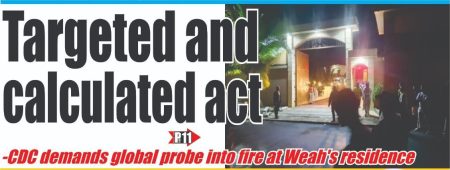Liberia Launches Community Revolving Drug Fund and Cost-Sharing Scheme to Enhance Healthcare Access and Affordability
The Liberian government, through the Ministry of Health, has initiated a transformative healthcare program aimed at revolutionizing access to essential medicines and healthcare services. This program, encompassing the Community Revolving Drug Fund (CRDF) and the Cost-Sharing Scheme, was officially launched at the C.B. Dunbar Maternity Hospital in Gbarnga, Bong County, and is being implemented nationwide across government-run health facilities. The launch event witnessed the participation of key stakeholders, including health officials, local government representatives, civil society organizations, and community members, underscoring the collaborative effort driving this significant healthcare reform. The initiative represents a crucial step towards addressing persistent drug shortages and strengthening the overall healthcare infrastructure in Liberia.
The CRDF component is designed to establish a self-sustaining mechanism for drug procurement and supply. Under this model, revenue generated from the sale of medications is directly reinvested to replenish drug stocks. This cyclical process ensures a continuous availability of essential medicines, addressing the chronic issue of drug stockouts that have plagued Liberia’s public health facilities. The system operates on a transparent principle: the funds collected from the sale of a specific medication must be used to purchase more of the same medication, ensuring a direct correlation between patient expenditure and drug replenishment. This strict reinvestment policy safeguards against the misuse of funds and promotes accountability within the system. The CRDF, therefore, serves as a financial engine, constantly replenishing drug supplies based on community demand and ensuring consistent access to essential medications.
Complementing the CRDF, the Cost-Sharing Scheme aims to cover essential operational costs associated with healthcare delivery. This scheme is designed to fund pharmacy maintenance, staffing, and the purchase of necessary supplies such as receipt books. By standardizing service fees across facilities, the scheme promotes transparency and eliminates discriminatory pricing practices based on a patient’s appearance, background, or perceived social status. This equitable approach ensures that all patients receive consistent and fair treatment, fostering trust in the public healthcare system. The scheme is intended to enhance the operational capacity of health facilities, providing a sustainable source of funding for essential non-medication expenses.
The combined implementation of the CRDF and Cost-Sharing Scheme represents a holistic approach to strengthening the healthcare system. While the CRDF focuses on ensuring continuous drug availability, the Cost-Sharing Scheme addresses the operational expenses required to maintain functional and well-equipped health facilities. This dual approach aims to create a sustainable and efficient healthcare delivery model that caters to the needs of communities across Liberia. The emphasis on affordability and accessibility is crucial, ensuring that healthcare services are within reach for all segments of the population, regardless of their socioeconomic status.
The launch of these initiatives at the C.B. Dunbar Maternity Hospital signifies a significant milestone in Liberia’s journey towards healthcare reform. It demonstrates the government’s commitment to addressing the systemic challenges hindering access to quality healthcare. By addressing both the supply of essential medicines and the operational capacity of health facilities, the government is taking concrete steps towards building a more resilient and responsive healthcare system. This initiative aims to restore public confidence in the public healthcare sector, ensuring that communities have access to reliable and affordable medical services.
The long-term impact of the CRDF and Cost-Sharing scheme is expected to be far-reaching. By ensuring a consistent supply of medications and strengthening the operational capacity of health facilities, the program aims to improve healthcare outcomes for communities nationwide. It represents a crucial investment in public health, paving the way for a healthier and more productive population. This initiative not only addresses immediate needs but also lays the foundation for a more sustainable and equitable healthcare system for the future. The combination of accessible medications and enhanced service delivery marks a significant step towards achieving universal health coverage in Liberia.
The Ministry of Health’s emphasis on transparency and equitable access in healthcare services is particularly noteworthy. The standardized service fees under the Cost-Sharing Scheme ensures that all patients are treated fairly, regardless of their background. This commitment to equity is crucial for building trust and encouraging community engagement with the public healthcare system. The Ministry’s proactive approach towards restoring confidence in the healthcare sector demonstrates a clear understanding of the importance of public trust in achieving sustainable healthcare reform. The success of these initiatives will rely on continued stakeholder collaboration and a commitment to transparent and accountable management of resources.














